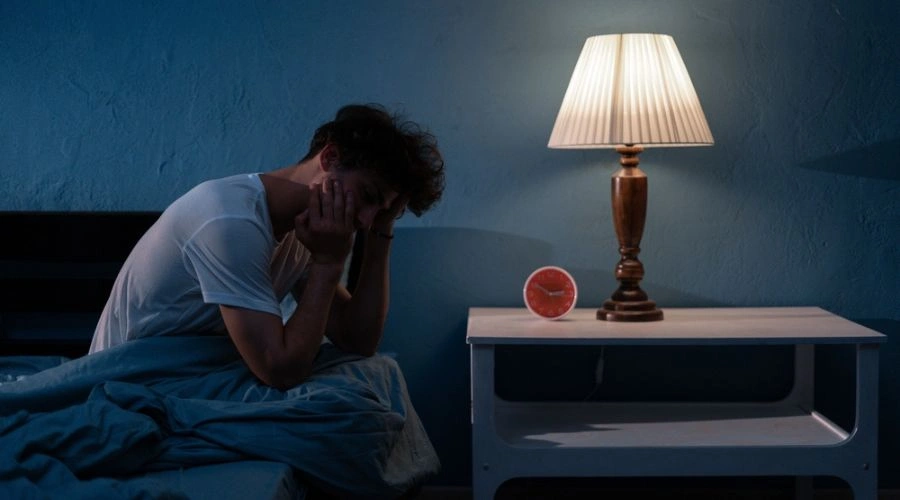Our Residential Treatment Program for PTSD at South Shores Detox
“I’m safe, I’m safe, I’m safe,” you mutter to yourself. There are no signs of danger and no sounds except your rapid breaths, but you can’t shake the feeling that something is wrong.
Your heart is pounding and your chest is tight, as your mind races about what could be lurking around the corner.
This is just one example of what living with post-traumatic stress disorder (PTSD) looks like. The good news? This doesn’t have to be your reality forever. PTSD inpatient treatment at South Shores Detox can help you heal.
Keep reading to learn more about PTSD inpatient treatment in Orange County at ‘the Shores, and how our offerings can make all the difference in finding lasting relief from trauma and a new lease on life.
Traumatic Events Causing PTSD or Complex PTSD
Everyone experiences trauma in their lives. Losing a parent or grandparent, serving during the war, a car accident, an assault, childhood neglect, or living through natural disasters are just a few examples.
Some people recover following these incidents. They may struggle with mood or sleep for a few weeks, but following that period, they start to heal.
This isn’t the reality for everyone. There are risk factors for PTSD, but it can happen to anyone. People with existing mental disorders and who have been through multiple traumas are especially susceptible.
In people who are diagnosed with post-traumatic stress disorder (PTSD) or complex PTSD, symptoms are still present after 2-3 months following the accident. These symptoms completely change your outlook on life. They interfere with daily functioning and strain mental health.
Symptoms of Post Traumatic Stress Disorder
As each person’s trauma and their response are unique, so are the PTSD symptoms that you’ll experience. This is one of the reasons we focus so heavily on an individualized, client-centered approach for people who turn to South Shores for help.
Negative Alterations and Mental Health Complications
Do you remember your outlook before the trauma? Chances are, it was much different. Going through a traumatic experience changes your worldview. It can be hard to feel excited about life or to even experience pleasure like you once did. Many survivors struggle with feelings of guilt, shame, or detachment.
Intrusive Memories
It can feel like you aren’t in control following trauma. You might have unwanted, persistent thoughts about what happened. Flashbacks might plague your waking hours and nightmares may disturb you while you sleep.
Hyperarousal
This symptom looks like worrying about what might happen, rather than what has already. Being constantly on edge makes it hard to relax or fall asleep. You might have anxiety while in public or feel irritable from being on guard constantly.
Avoidance
Nobody wants to experience the feelings of trauma. This might cause you to consciously or subconsciously avoid things that trigger you. It can be people, places, situations, or emotions that you somehow relate to the traumatic event.
Additional Symptoms of Complex Trauma
The biggest differences between PTSD and complex trauma are the event that triggered the trauma and the resulting symptoms. Complex PTSD is most common after an extended or repeated traumatic event. Wartime imprisonment, childhood abuse, intimate partner abuse, or prolonged physical or sexual assault can cause complex trauma.
This also results in problems like extreme distrust, emotional dysregulation, and relationship problems. The trauma changes how you feel about the people around you. Dissociative symptoms, low self-esteem, and intense feelings of guilt, shame, or worthlessness are also common.
When to Consider Inpatient PTSD Treatment
PTSD is going through something terrible and then not being able to move past it. PTSD symptoms can be so severe that your relationships, employment, and home life are affected. Some people lose their jobs, go through break-ups, or withdraw from their families.
Being unable to sleep also exacerbates anger outbursts, emotional dysregulation, anxiety, and depression. Daily life isn’t just hard – it feels unmanageable.
Residential care can help with these issues. It’s also a good choice if you have severe depression or suicidal ideations.
People struggling with substance use disorder or other mental health disorders can also benefit from the intensive support found through residential care. If this isn’t an option, then severe PTSD may benefit from an intensive outpatient or partial hospitalization program, rather than less structured outpatient care.
Elements of a Comprehensive PTSD Treatment Program
PTSD treatment starts with feeling comfortable and having a healthy client-therapist relationship. Through trauma-informed care, our team establishes a rapport with people who are struggling with PTSD.
We offer the opportunity to overcome trauma in a way that doesn’t cause additional problems or re-traumatize those who have already been through enough. You won’t find this at all PTSD treatment centers, which is one of the things that sets South Shores Detox apart.
Individual Therapy
There are many therapeutic approaches we might recommend depending on your needs. Someone who has dissociated so much that they don’t remember trauma, for example, might benefit from eye movement desensitization and reprocessing (EMDR) therapy.
Trauma has a way of distorting reality. Cognitive behavioral therapy CBT) is a good choice for people who have negative emotions about what happened or the world around them.
Narrative exposure therapy involves talking about what happened and processing it. As you go over it in talk therapy, again and again, the story (and associated emotions) don’t have as much power over you.
Prolonged exposure therapy helps if you have overwhelming, chronic feelings of anxiety or depression. You’ll be gradually exposed to your triggers through this treatment for PTSD. As you process trauma and cope with the associated feelings, you realize how strong and capable you are of handling them.
Family therapy sessions might also be recommended. This benefits clients in healing relationships that may suffer from trauma and teaching families how to better offer their loved one’s support.
Group Therapy
Think about the people you are close to. What relationships have felt the aftershocks of the trauma? Do you feel you can trust someone with what happened or have you isolated from family and friends?
Group therapy offers an outlet to share what happened among people who have also experienced the negative emotions common following a traumatic experience. You won’t feel judged among them, making it easier to process feelings like shame, guilt, or sadness.
Holistic Therapies
Our holistic approach promotes total healing. Through nutritional wellness, getting enough sleep, proper hydration, and being physically active, you start to feel physically better.
We also offer art therapy, music therapy, and surf therapy, among other types of recreational activities. Experiential activities like these are great for processing emotions. You’ll build confidence and learn coping skills.
Medication Management
It’s easier to focus on healing and overcome PTSD when your symptoms are being managed. Prazosin can be prescribed to treat nightmares. Anti-anxiety medications or anti-depressants (including SSRIs and SNRIs) may be recommended. As the noise in your head gets quieter, it becomes possible to process trauma-related memories so you can heal.
Ongoing Support
Unfortunately, even with PTSD treatment, what happened won’t go away. There’s no magic button to erase it from your mind. The good news is that you won’t struggle forever with the proper support.
PTSD support groups, weekly therapy, and committing to a lifestyle that supports recovery will benefit you going forward. While the memories won’t go away completely, your ability to handle your triggers will transform. These memories start to lose power.
Co-Occurring Disorders and PTSD Inpatient Treatment in Orange County
Many clients who come to South Shores for recovery from post-traumatic stress disorder (PTSD) are struggling with a secondary disorder. This co-occurring disorder can develop separately or as a result of PTSD.
When treating PTSD with a co-occurring physical or mental health condition, both problems must be addressed for total healing. This requires a dual diagnosis approach, something we specialize in at South Shores.
Depression
From social withdrawal to a negative outlook, trauma and depression share symptoms. Reliving something so terrible, repeatedly, can also cause Major Depressive Disorder.
Anxiety
Chronic worries about what happened can spill over into daily life. Many people with PTSD develop a generalized anxiety disorder or panic disorder. Social anxiety disorder is another common dual diagnosis.
Addiction Disorders
Research shows that people who experience trauma have trouble with cravings. Tobacco, alcohol, and drug abuse can all be affected by this. It also makes treating co-occurring addiction disorders complex, though it isn’t impossible with the right help!
Eating Disorders
Whether your stomach hurts from anxiety or you are detached from emotional numbness and forget to eat, proper nutrition can be hard. This can lead to an eating disorder being diagnosed alongside PTSD.
Personality Disorders
Conditions like borderline personality disorder are affected by trauma, especially trauma that happens in childhood. It shapes your worldview from an early age, making it hard to trust those around you and increasing the chance of having PTSD and a personality disorder.
Sleep Disorders
Insomnia, sleep disturbances, and nightmares are all common following traumatic experiences. Some survivors turn to medication, drugs, or alcohol to help them sleep, though this can worsen nightmares and make it hard to fall into REM sleep, making PTSD symptoms worse.
Psychosis
Post-traumatic stress disorder with psychosis is diagnosed if you are experiencing hallucinations or delusions following trauma. It is a break from reality. Sometimes, this break comes after being triggered or experiencing a stressful event.
Physical Health Problems
Trauma isn’t always tied to the mental wounds that happen from trauma. It’s very possible to be physically injured as a result. In addition to injuries, other common physical health problems include chronic pain, headaches, fatigue, gastrointestinal problems, and cardiovascular issues.
Find Tools for Lasting Recovery from PTSD at South Shores
At South Shores, we understand how important learning to manage the symptoms of PTSD is for your recovery journey. We cannot make what happened to go away, but we can take away its power.
Not all PTSD treatment centers offer the true support and accredited care that you’ll find at South Shores Detox. Remember that your trauma does not have to define you. Call us today to discuss treatment options so that you can regain control of your life.





